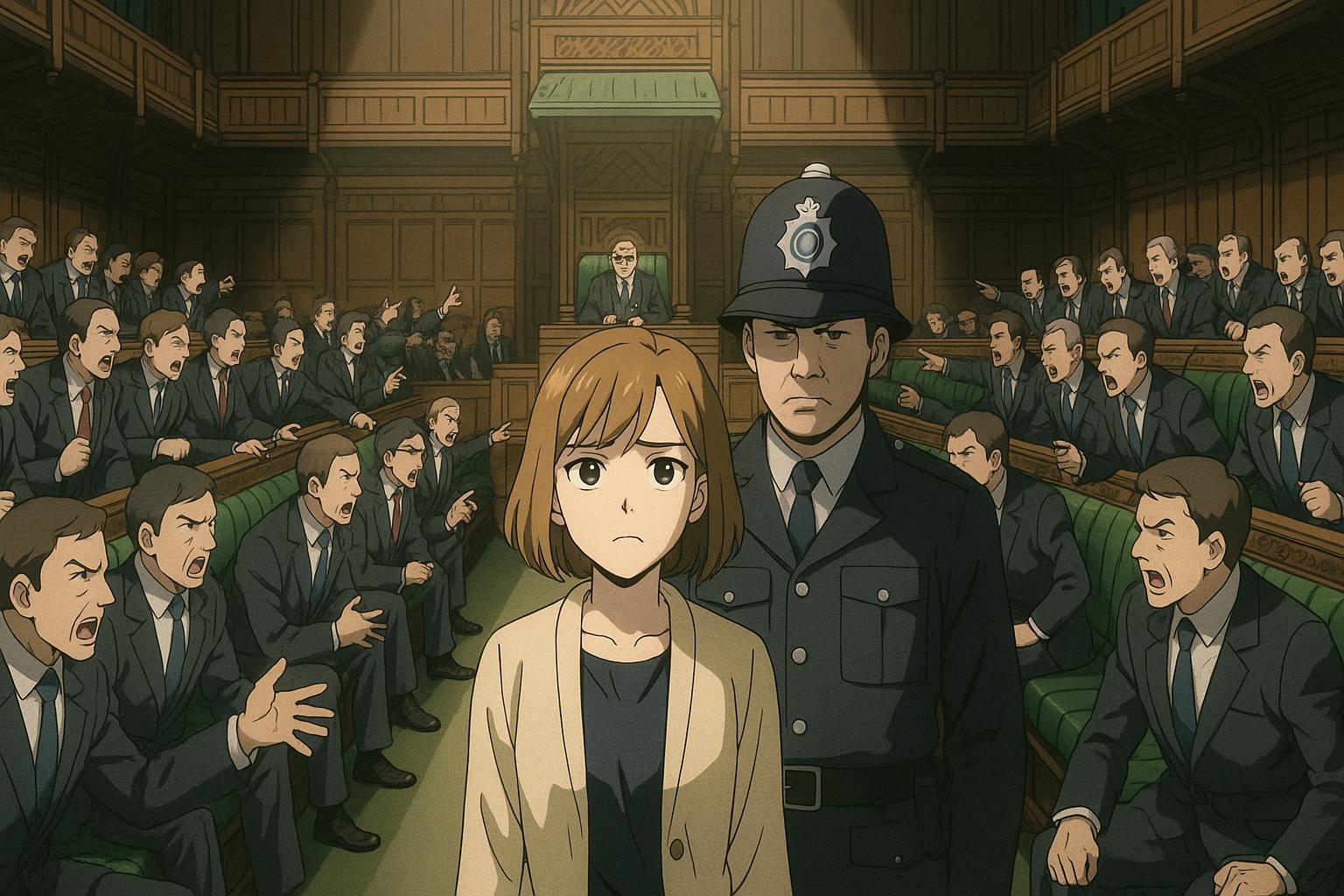Britain is at a critical juncture concerning civil liberties, with a stark warning from former Prime Minister Boris Johnson that the country risks becoming a police state under the current Labour leadership of Sir Keir Starmer. The alarm was sounded amidst a tumultuous debate over free speech, particularly highlighted by the case of Lucy Connolly, a mother sentenced to 31 months in prison for inciting racial hatred through a social media post following the tragic Southport murders.
Connolly's tweet, which urged followers to "set fire to the hotels" housing migrants shortly after three girls were killed, has ignited fierce nationwide discussions. Johnson condemned the court's handling of Connolly's case as a harbinger of a declining reputation for free speech in the UK. He emphasized that the police are now making over 10,000 arrests annually for online comments, a figure which, he claims, surpasses those in even more repressive regimes, such as Russia. This sentiment echoes concerns that a wider culture of fear is permeating society, where citizens may hesitate to express legitimate opinions due to the threat of legal repercussions.
The case has drawn comparisons between Connolly's lengthy sentence and the notably more lenient treatment of violent offenders. Justice spokesperson Robert Jenrick highlighted the disturbing reality of multiple offenders, including domestic abusers and shoplifters, receiving lighter sentences than Connolly for far graver crimes. This disparity has led to allegations of a two-tiered justice system, raising questions about priorities in law enforcement and societal treatment of different offences.
Connolly's supporters, including her husband Ray, argue that while her comments were indeed shocking, they were made in a moment of emotional turmoil following the murders. Ray Connolly insists that his wife has been unjustly isolated from her family for a social media post that was quickly deleted and deemed a "stupid mistake." The widespread criticism of Connolly's sentence reflects a growing unease around the balance between upholding social justice and preserving free speech.
The case occurs against a backdrop of escalating tensions fueled by misinformation, particularly regarding immigration and crime. Starmer's government is grappling with consequences related to recent far-right riots, which erupted following fatal incidents wrongly attributed to migrants. Riots swept through various parts of the UK, resulting in nearly 400 arrests and prompting significant discussions within government circles about the adequacy of current online safety legislation.
As misinformation spreads rapidly online, it complicates the response to such events. The government's Recent Online Safety Bill, designed to regulate and mitigate harmful content, faces pressures for an even more robust approach to tackle misinformation. Critics argue that this legislation does not adequately address the issue, leaving room for further escalation of online extremism, which Starmer has described as a "cesspit."
In light of these events, the government is contemplating an urgent approach to rework existing laws. Authorities are exploring options to broaden the scope of online regulations in the aftermath of the riots, which have exposed vulnerabilities in how social platforms handle incendiary content. Cases are being expedited, and additional police presence is being mobilised to counter the far-right's influence in these disturbances.
Starmer himself has committed to a firm stance against such extremism, promising that those involved will face swift legal action. His government has also begun working alongside law enforcement agencies to monitor online activities more closely, revealing a determination to confront the dangers posed by misinformation and politically motivated violence.
The intersection of these issues—civil liberties, free speech, and public safety—creates a complex tapestry that the current government must navigate carefully. With citizen concerns about justice, safety, and rights hanging in the balance, the conversations sparked by Connolly's case and related events will likely shape the political landscape for years to come.
Reference Map
Source: Noah Wire Services
